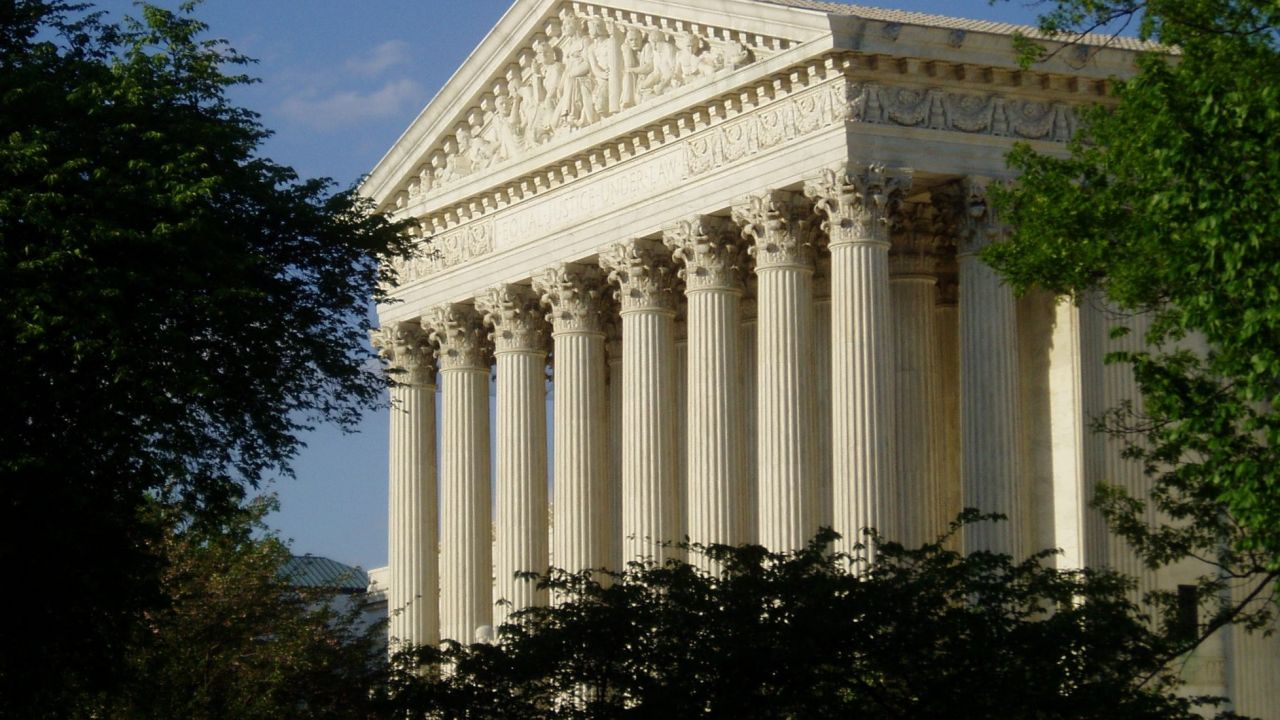
The US Supreme Court. (Matt Wade/Flickr cc 2.0)
Getting unlimited, special-interest money out of politics, an issue long on the back burner for politicians in Washington, moved front and center with this election year, driven by an outpouring of voter frustration. Both Bernie Sanders and Donald Trump ignited widespread support by pitching themselves as being outside a political system many voters see as being rigged by wealthy donors.
In the last presidential debate, unprompted by the moderator, Hillary Clinton said that she wanted to appoint Supreme Court justices who “will stand up and say no to Citizens United, a decision that has undermined the election system in our country because of the way it permits dark, unaccountable money to come into our electoral system.”
But a newly appointed justice can’t simply stand up, on day one, and say “no.” A case will have to come before the Supreme Court first, and only then can justices begin to unwind the host of decisions, of which Citizens United is only one, that have allowed a flood of often untraceable money to swamp America’s elections.
Reform advocates have already begun to tee up challenges that could give a Supreme Court with a new majority an opportunity to rethink rulings like Citizens United and a lower-court ruling, SpeechNow v. FEC, which created super PACs. The battle is being waged on two fronts.
The first involves a frontal assault on some of the most prominent super PACs in this year’s election. Advocacy groups have sued the Federal Elections Commission for failure to enforce election law.
Lawyers behind the effort, including former advisers to Presidents Barack Obama and George W. Bush, argue that super PACs should not be legal, and that the lower court that effectively greenlit them with the SpeechNow ruling made a mistake. Ultimately that case could wend its way to the Supreme Court.
— Scott Greytak, Free Speech for People
The second front is opening at the grass roots. The idea is that a city or state can create a law cracking down on some of the big-money election tactics that have become commonplace, expecting that that law will then be challenged. St. Petersburg, Florida is attempting to do just that.
Florida, an iconic political swing state, has seen quite a bit of attention — and money — from wealthy interests (candidates for state office are allowed to accept donations directly from corporations, something that’s illegal at the federal level), and many in the state are fed up. St. Petersburg City Council Vice Chair Darden Rice introduced a measure this summer that would effectively make super PACs illegal in her city. The council voted 6-1 in favor of considering the measure.
“Money in politics is a very big problem in Florida politics,” says Scott Greytak, a lawyer with Free Speech for People, one of the groups encouraging the St. Petersburg ordinance. “Gainesville passed lower candidate contribution limits — the lowest in the state — but then super PACs popped up because they can spend whatever they want. It’s kind of like playing whack-a-mole.”
In pushing the super PAC ban, backers of the measure are actually hoping to get sued.
“There is a likelihood it would be challenged,” councilmember Rice told a local radio program this summer. “I am working with some of the best legal minds in the country, who are working on overturning Citizens United,” she said, a reference to Laurence Tribe, a Harvard Law professor and former Obama advisor, and Richard Painter, a University of Minnesota Law Professor and former George W. Bush advisor, who have teamed up with Free Speech for People and other reform groups.
Once challenged, the fight will advance through the court system and, advocates hope, ultimately reach the Supreme Court. At that point, the court will have the opportunity to reconsider the legal framework that allows for super PACs.
It’s a long row to hoe — but reformers see these legal strategies as more promising than the long-shot bids to pass a constitutional amendment overturning Citizens United. If a President Hillary Clinton can manage to overcome the already-promised Senate opposition to fill vacancies on the Supreme Court, the Pandora’s box opened by Citizens United and similar decisions might eventually be closed.




